EDIT: Red Bull ran this useful little article summarising my thoughts on making a career from adventure.
So, you want to be a professional adventurer? You want to go beyond simply doing great journeys in your spare time, holidays or sabbaticals. Here are a few thoughts, for what they’re worth, about what I’ve learned over the last few years about turning my hobby into my job.
First things first. It did not occur to me to try to earn my living from adventure until I had already spent a year in Africa, done three separate expeditions each of three-months duration, spent three months working and travelling in Asia, written for my university travel magazine, written two books (only one of which got published), done a night-school photography course, and given more than 300 talks.
In other words, like in every other career (except for Being-a-Celebrity or Going-on-X-Factor which too many people aspire to as shortcut solutions), I’d served some sort of apprenticeship and built up some useful experience. It always worries me when people email me asking “how do I become an adventurer” before they’ve even done any sort of adventure.
Next, because I know that “adventurer” sounds like quite a fun job, and certainly a whole lot easier than nearly every proper job out there (except the two mentioned in the previous paragraph), here’s a few thoughts I penned to try to pour a little cold water [realism] on your dreams. And now, if you’re still reading, here’s a few more thoughts to help you clarify whether or not this is the job for you (because, if you decide to make your hobby a job, then it will become a job…).
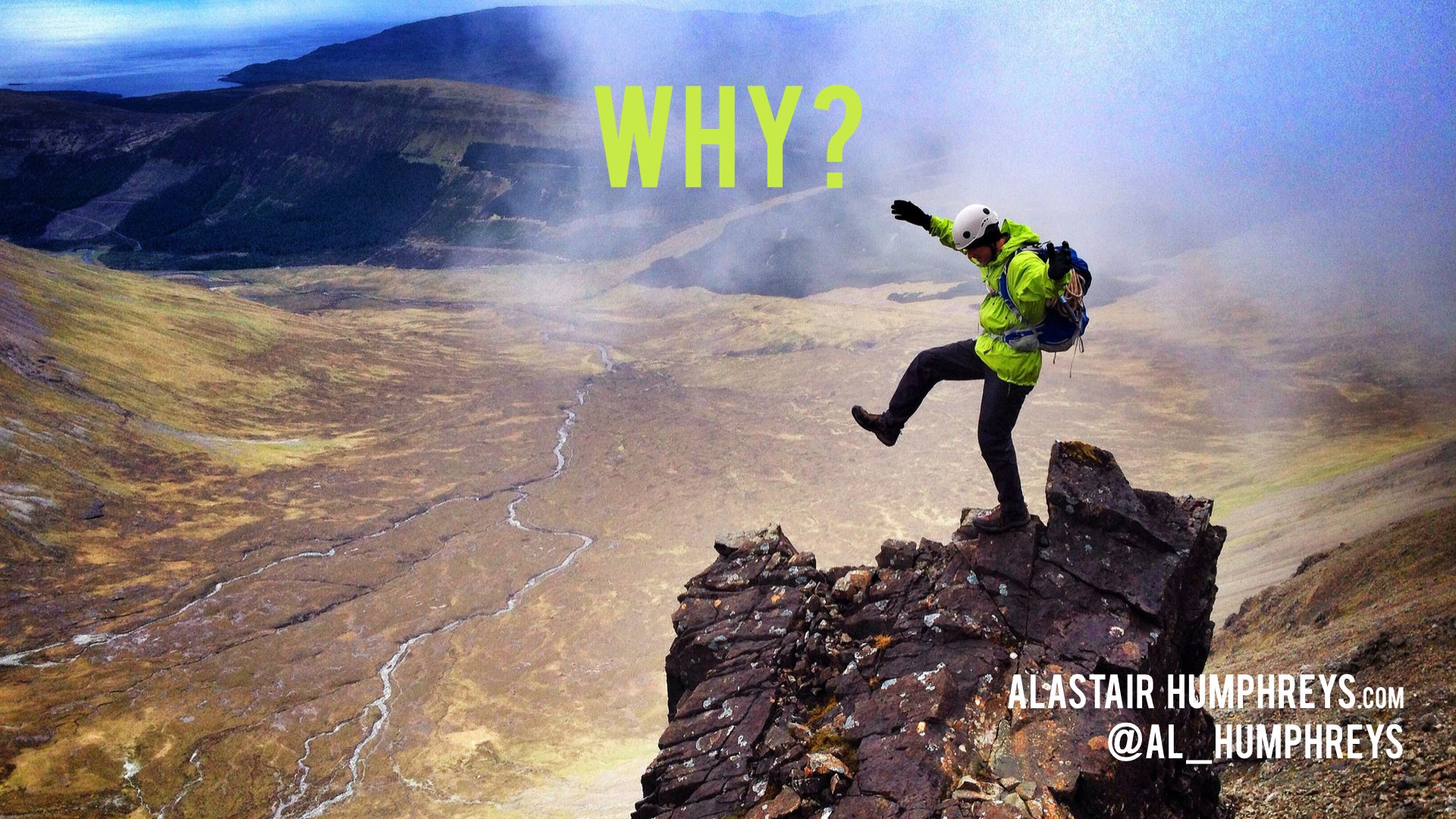
Why I am an Adventurer
Or, in other words, why I don’t just work a proper job and take a few months off occasionally to go on a big adventure.
- I love almost every aspect of what I do.
- I love being self- employed: the freedom and the responsibility and the pressure.
- I think I’m probably now un-employable.
- I love being creative.
- I appreciate that building a profile helps generate exciting opportunities. (And I have come to accept -though not enjoy- the weird world of relentless self-promotion that being a career adventurer requires. I remain uncomfortable with people praising me more than I deserve, and I continue to get very angry and upset with the inevitable haters that your self-promotion will attract.)
Notice I don’t mention “going on adventures”, because there are loads of ways to do that in life. Don’t become a career adventurer solely because you want to go off on fun trips. There’s easier ways to do that.
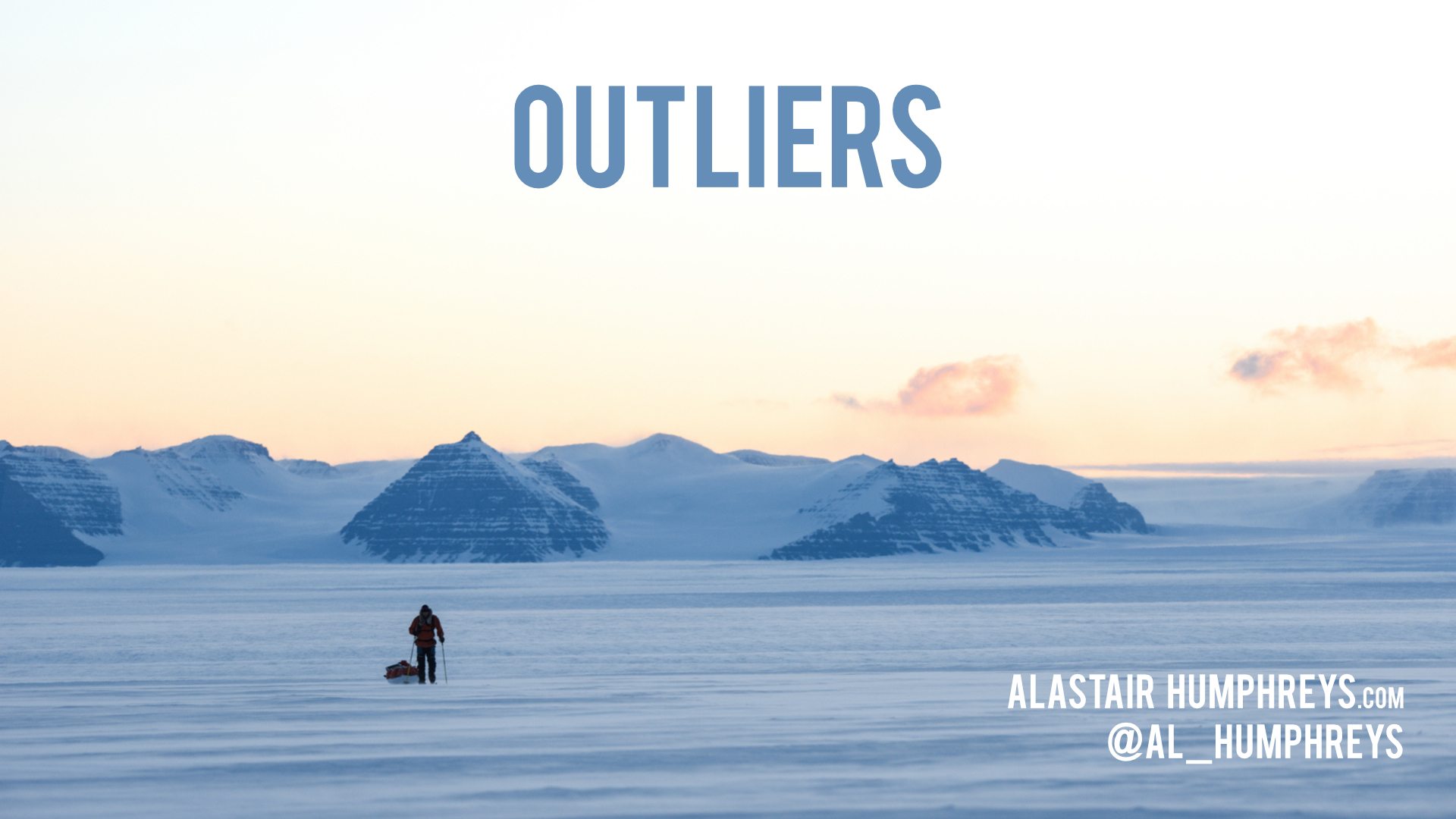
The Outliers
When considering trying to make a career out of travel and adventure, do not make the mistake of imagining your career path to emulate those of the outliers in the field. By definition you are unlikely to achieve as much as them.
- You are unlikely to be as great a climber as Reinhold Messner
- You are unlikely to sell as many books as Bill Bryson
- You are unlikely to take photos as well as Jimmy Chin
- You are unlikely to make films as successful as Paul Diffley’s
- You are unlikely to be on telly as much as Ben Fogle
- You are unlikely to be as rich as Bear Grylls
- You are unlikely to have the biggest stroke of luck that makes great things happen
- You are unlikely to have the best address book full of useful contacts who can make great things happen for you
That’s OK. Just be realistic with your dreams and ambitions. Assume that you’ll have to do everything yourself, starting at zero. And if you can do stuff that makes you proud, and earns you enough along the way… well, that’s enough, isn’t it?
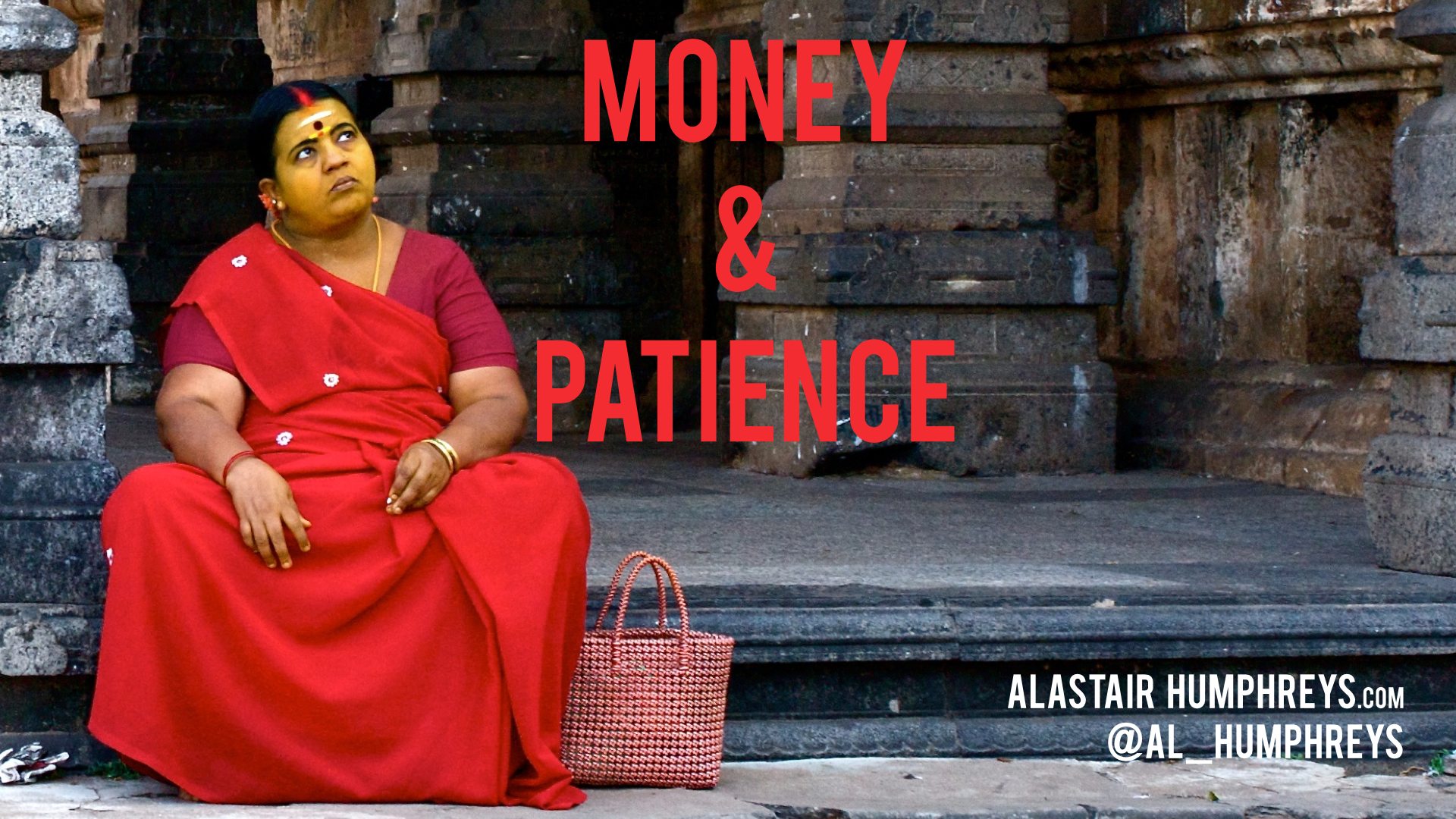
Money and Patience
Two things separate those who make long careers from adventure from those who fall by the wayside: Money and Patience…
Money
Three questions for you:
- How much do you need to earn?
- How much do you want to earn?
- How little money can you exist on?
You would be wise to embark on an attempted career as an adventurer only if you’re willing to live by the final of those questions, and be willing to do so for several years before you’re able to move on to the first question. If the answer to the second question is anything more than “enough to live on”, then this probably is not the job for you. Sure, a few adventurers are rich, but remember the Outliers above. Most adventurers are not rich. Consider also the fairly reliable correlation that richer adventurers live less adventurously than the poorer dirtbags living out of vans but climbing 300 days every year. Think about what you want. If you want to earn well, you’d be wise to get a different job and just spend some of your earnings on adventures. I know plenty of less intelligent, less driven people who earn many times what I do. And besides, wanting to live adventurously is almost the antithesis of wanting to be rich!
A few more points about money:
- How are you going to earn what you need right now? I don’t mean in 10 years time when you’re a mud-streaked millionaire with a clothing range and a six pack. I mean this week, this month, this year. How are you going to pay rent, bills and taxes before your new career gets established? For most people the sensible option will be to have a “proper job” and fit your adventure stuff in on the side. Give talks on your days off. Write your book before breakfast. Plan your expedition at night. Burn the candle both ends. Make stuff happen. It won’t be easy, but if you can’t hack this busy phase then you won’t be able to hack the hours you’ll need to put in over the coming years to make your career as an adventurer sufficiently viable to reduce your other work hours and – eventually – quit your job and strike out on your own full time, with no support net if you screw up.
- Bear in mind that even the rugged, glamorous adventurer you are dreaming of becoming will still need to file tax returns, log expenses, chase invoices and wonder (at some point, probably, hopefully, possibly) what the heck you are going to do about a pension. I can vouch from experience that the first three of these are agonisingly dull, and the pension security is still very far down my To Do list.
- Is it wise to make yourself a Golden Goose? Adventurers, almost always, depend on their repertoire of experiences to be able to earn money. What will you do when your knees pack in? What will you do when you’re older and wiser and fed up of being miserable and cold on a regular basis?
- If you like climbing or paddling, why don’t you become a guide and get paid by someone else to spend time out there doing what you love? Or become a scientist and get out on research trips? Or become a teacher and get paid to live and work in some exotic far-off land?
If you’re still keen, I write below about the ways that adventurers generally make their money. But before that, the second crucial characteristic for a sustainable career as an adventurer:
Patience
You need to be in this for the long run. It will probably take years before you write a good book, get involved with exciting projects, or earn much money. You need to enjoy the process and the journey. You’ll need to work many hours. You’ll need self discipline and to learn to manage your time, just like anyone running their own small business.
What you don’t need is any sort of idea about where your fledgling career is going. The path will twist and turn. So long as you are willing and make yourself financially able to serve a long apprenticeship, then you can enjoy this journey. But you must be willing to accept that things do not come about instantly. Too many people set the cart before the horse, seeking the honour and recognition but without first completing the hazardous journey on low wages in the bitter cold through long hours of complete darkness.
“Ready, fire, aim” is a great attitude for just getting started, launching in, and figuring stuff out along the way. It’s the way most adventurers operate. And it’s all good, just so long as you accept that it’ll probably take a long time before you hit whatever it is you’d like to hit.
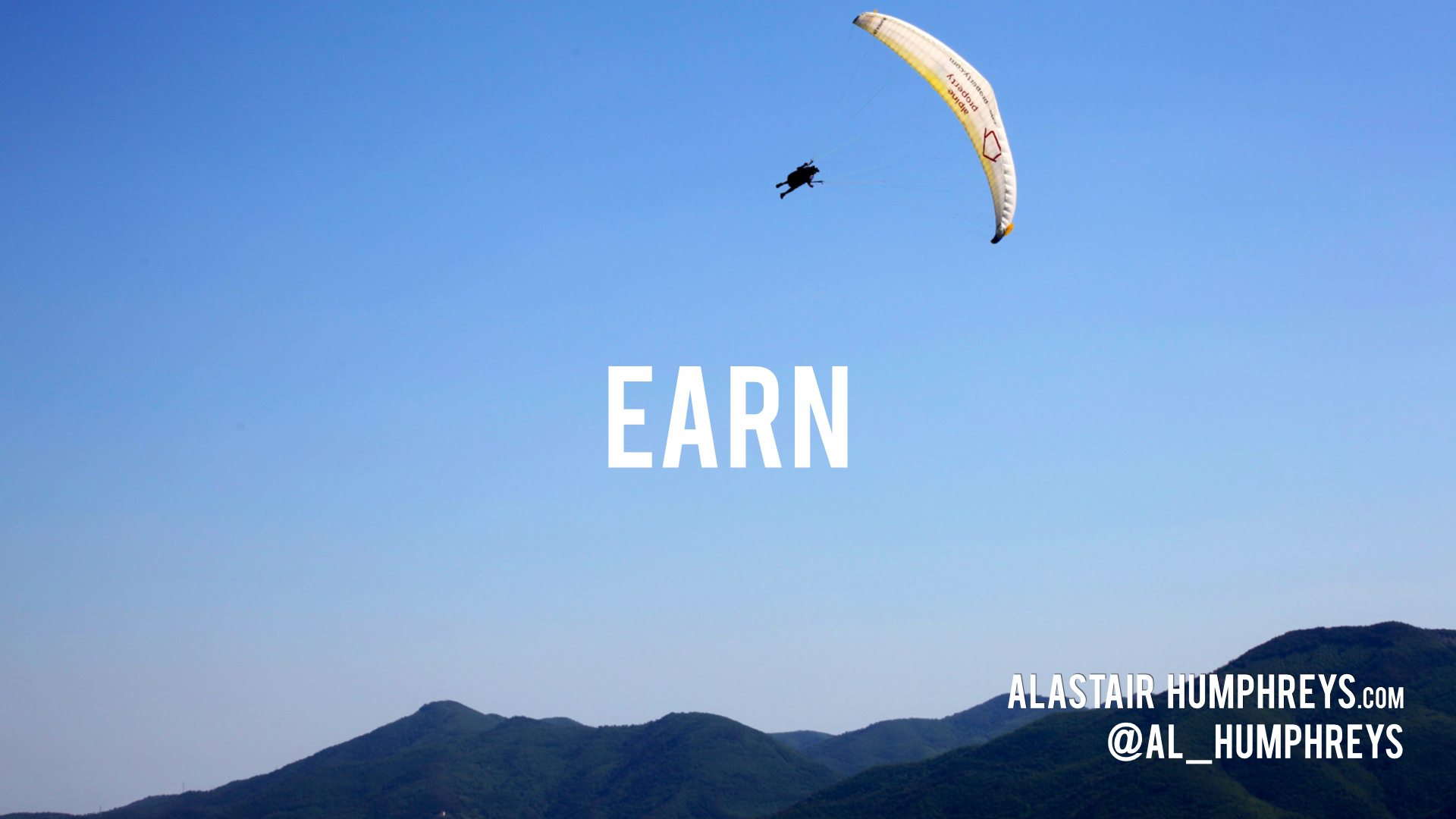
How to Earn Money as an Adventurer
If you want to make your career out of adventure then you’ll need to earn money from it. Some people think adventure is too pure a concept to monetise. These people will either find some other way to fund their adventures (which is absolutely fine), or they’ll just settle for criticising you online instead. By and large, these are the ways you can earn money.
Which one can you do? Which can you learn to do? Which will you enjoy?
- Guiding. Do you have the skills and qualifications? Do you want to guide other people on their adventures? Will you be employed by someone else, or strike out by yourself? If you go it alone, how are you going to get anyone to book with you rather than everyone else who is already established?
- Brand Ambassador. Unless you are a celebrity or uber-sexy, then this will not happen until you have served your lengthy apprenticeship. Ignore it for at least a decade.
- TV. Unless you are a celebrity, lucky or uber-sexy, then this will not happen. Ignore it.
- Blogging. There is negligible money involved in blogging (unless you become a renowned expert in a lucrative niche). But if you persevere with it, and do it well, then blogging is a useful way of making you more visible, known and respected online. This, eventually, might lead to earning some money from somewhere. I’ve written 1500 blog posts so far.
- Writing for Magazines. There are few paid slots available for adventure articles. The pay is OK (generally a few hundred quid), but I struggle to get more than a dozen in a year. Magazine articles are useful though for leverage (see below), and for raising your profile. It’s very hard to get your foot in the door.
- Writing Books. Very few adventurers can make a living from writing books. I have written seven books now, and still only earn about 15% of my income from the royalties. If you look at books in terms of an hours of effort to cash earned ratio then they are a terrible idea! But books make you seem more important than you really are, help raise your profile and – most importantly – can be incredibly challenging and rewarding to tackle. Self-publishing has removed many of the barriers to entry, but the problem of who will buy your book still remains.
- Film-making. Even less lucrative than book writing, in my experience! Satisfying, time-consuming, intriguing, frustrating in equal measure. Good films can help you spread the word online if they reach a wide audience. Lots of skill, time, effort and financial outlay required.
- Speaking. Speaking about my adventures is the only way I have managed to make what I do into a viable career. But it did not come quickly. I gave over 300 talks before I earned any money from it. So did having a decent-sized trip to talk about (4 years cycling round the world). My first paid talks were for tiny fees in schools. Do lots of these, get better at them, get references, and gradually you’ll be able to raise your fee. Training as a teacher helped. Getting into corporate speaking took me several years of effort after getting pretty established as a schools speaker. There is a lot of competition. It requires effort, application and a concerted focus on how you present yourself online. Not everyone is comfortable with these things, or with speaking to large corporations in general. It is certainly possible to make a living as a schools speaker though. Talks earn me money, expose me to a larger audience (who may one day ask me to give a talk), and help me to sell books.
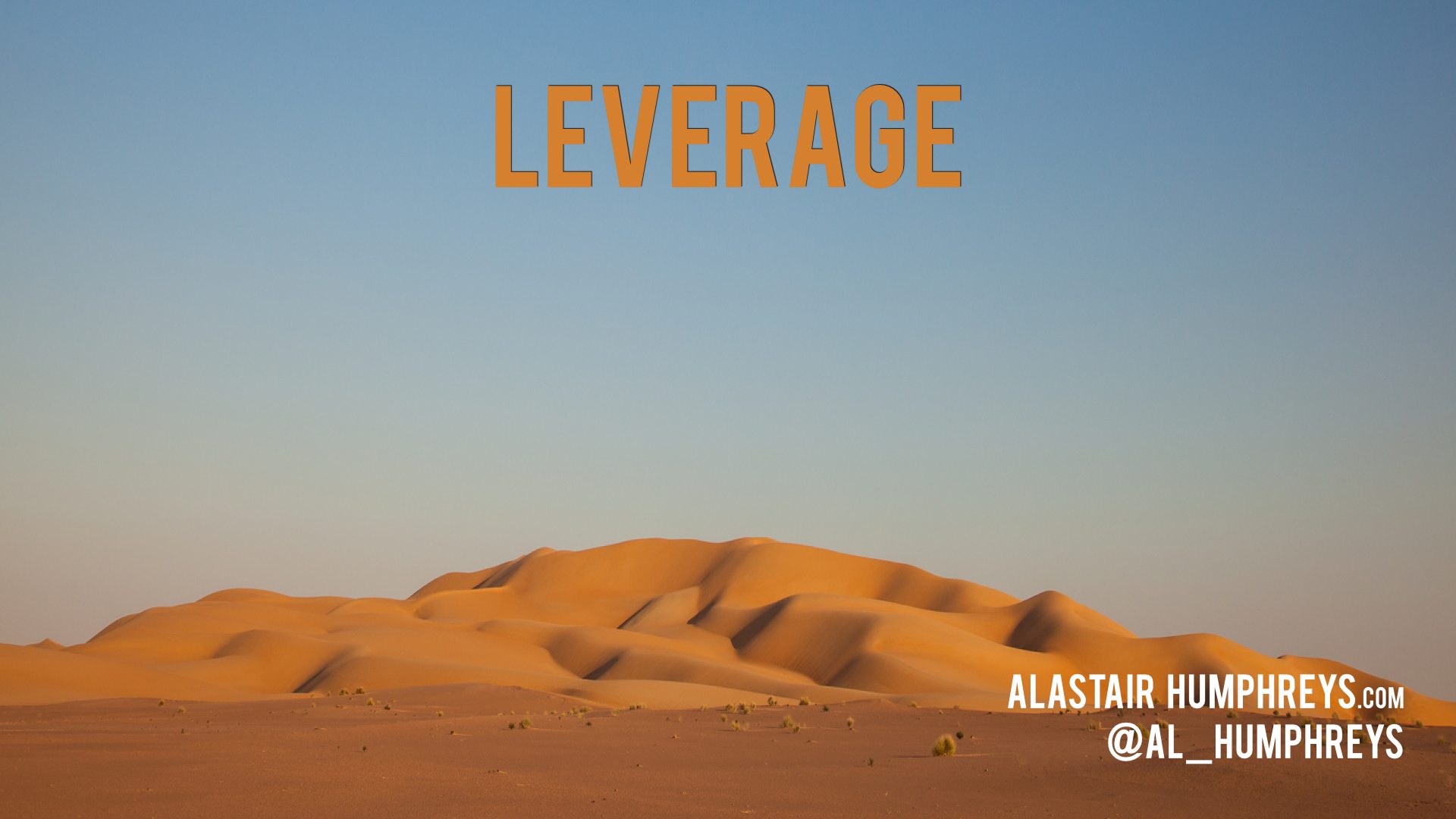
Leverage
If you want to climb K2, first you need to get good at climbing small, local mountains.
If you want to write a book, you’ll do a better job if you’ve already been writing for blogs and magazines.
If you want a big publisher, it helps if you’ve already published lots with small publishers or by yourself.
If you want the BBC to commission a series about your idea, it makes sense to have filmed plenty of short pieces yourself first.
If you want to speak at TED, get started now by speaking at your local Rotary Club, village hall, primary school, small business and so on.
With each rung you climb people will perceive you as being more competent. They’ll take a punt on you with a bigger project next time.
And do not be afraid to ask for help. Cold calling does not work, or at least not at first. So ask your Mum to ask her friend who can ask her boss who can ask someone else who, eventually, might be the person to help open the door for you. Be grateful. Fulfil your promises. Deliver more than you were asked for. Make each talk your best ever. Make each journey bolder, richer, more imaginative, fresher.
In other words, do the very best that you can achieve right now. Get started. Creep up the ladder. Improve. Don’t just sit around waiting, feeling like life is unfair, looking enviously at others.

Social Media
Much of your viability as a career adventurer depends upon the oxygen of publicity. You need to do good journeys, or course, but if nobody knows about them you’re not going to be able to earn a living. So you need to build, grow, and keep an audience of supporters.
First up, it’s essential to understand the principle of 1000 True Fans. The theory goes that you can make a living if you have a loyal support of 1000 people who’ll buy all your books, attend all your events, and so forth. How to get that audience? Do good stuff. Be different. Build a Tribe. This takes a long time.
Which brings me to social media… For social media is seen as a quick-fix solution, a way to get a big audience quickly and without effort. Sure, you can buy a gazillion Twitter followers, but that is totally missing the point. You need to produce quality content, and deliver it to people who actually want it (i.e. not Spam).
Whatever numbers of “followers” you have on social media, the actual conversion rate [making them buy stuff, to put it crassly] is minute. And every time you ask, you use up a little of your goodwill capital. So it’s far better not to consider social media as a magic wand. And it will never, ever work unless you do cool stuff. Nobody will care until then.
Social media can help your growth, but slowly. Here is how I think you should try to use it:
- To entertain and inform
- To help people in your niche (answer questions, don’t just self-promote)
- Generating a presence – comment on blogs, help people on forums, offer advice
Process Summary
My advice on how to turn your adventures into a career distills down to these few points, written in decreasing order of importance:
- Do good stuff. (Without this, you have nothing)
- Repeat Step 1
- Work out your USP (unique, original, fresh, different, useful, but not a gimmick)
- Generate great content
- Repeat Step 4
- Focus on substance over style
- Tell people about it
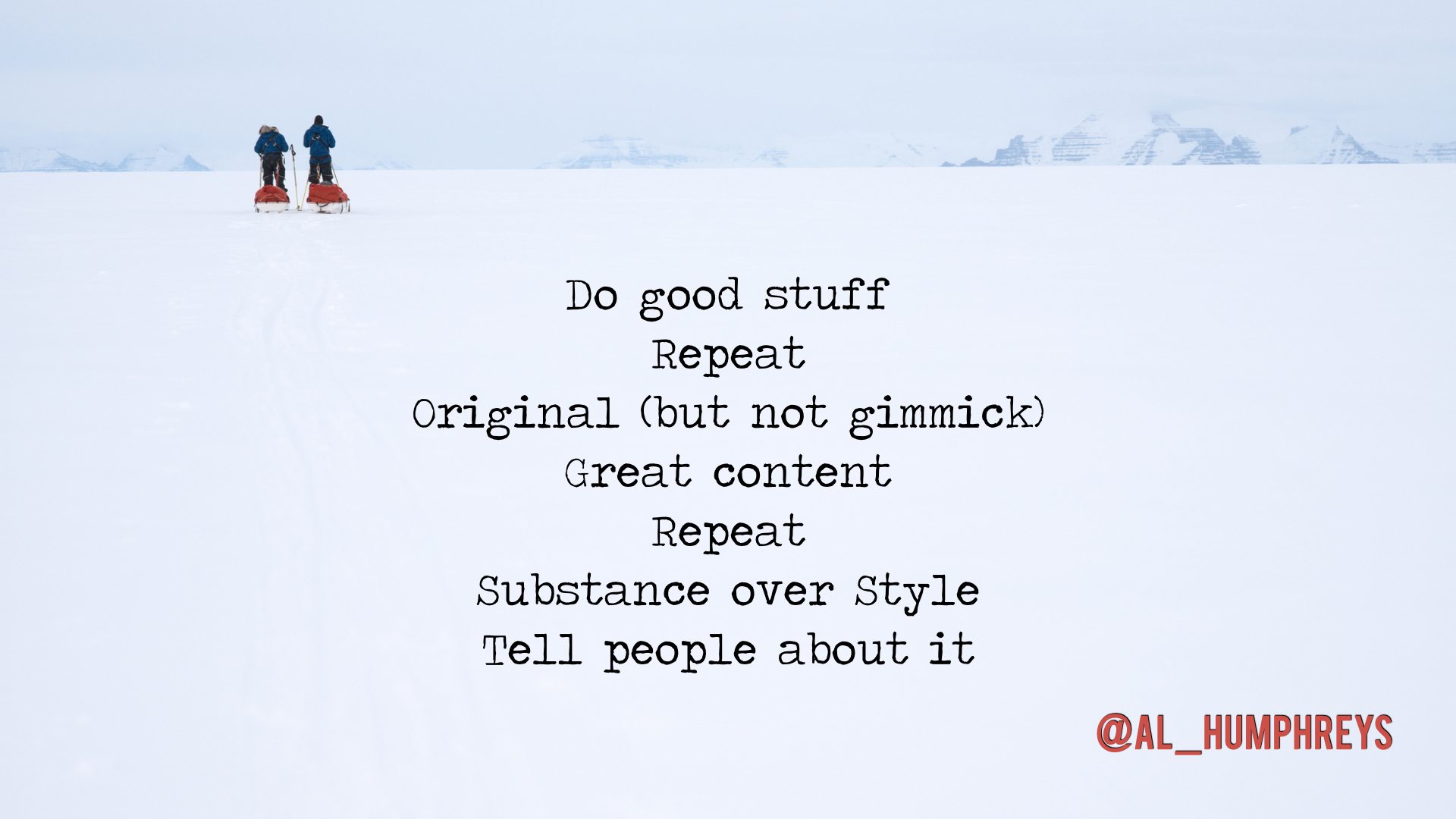
Checks and Balances
Finally, keep yourself on the right path by paying regular and rigorous attention to these points:
- Why did you set out down this path in the beginning?
- What are your true aspirations?
- What Would …. Do? [Insert name of person you respect the most]
- Don’t believe your own bullshit!
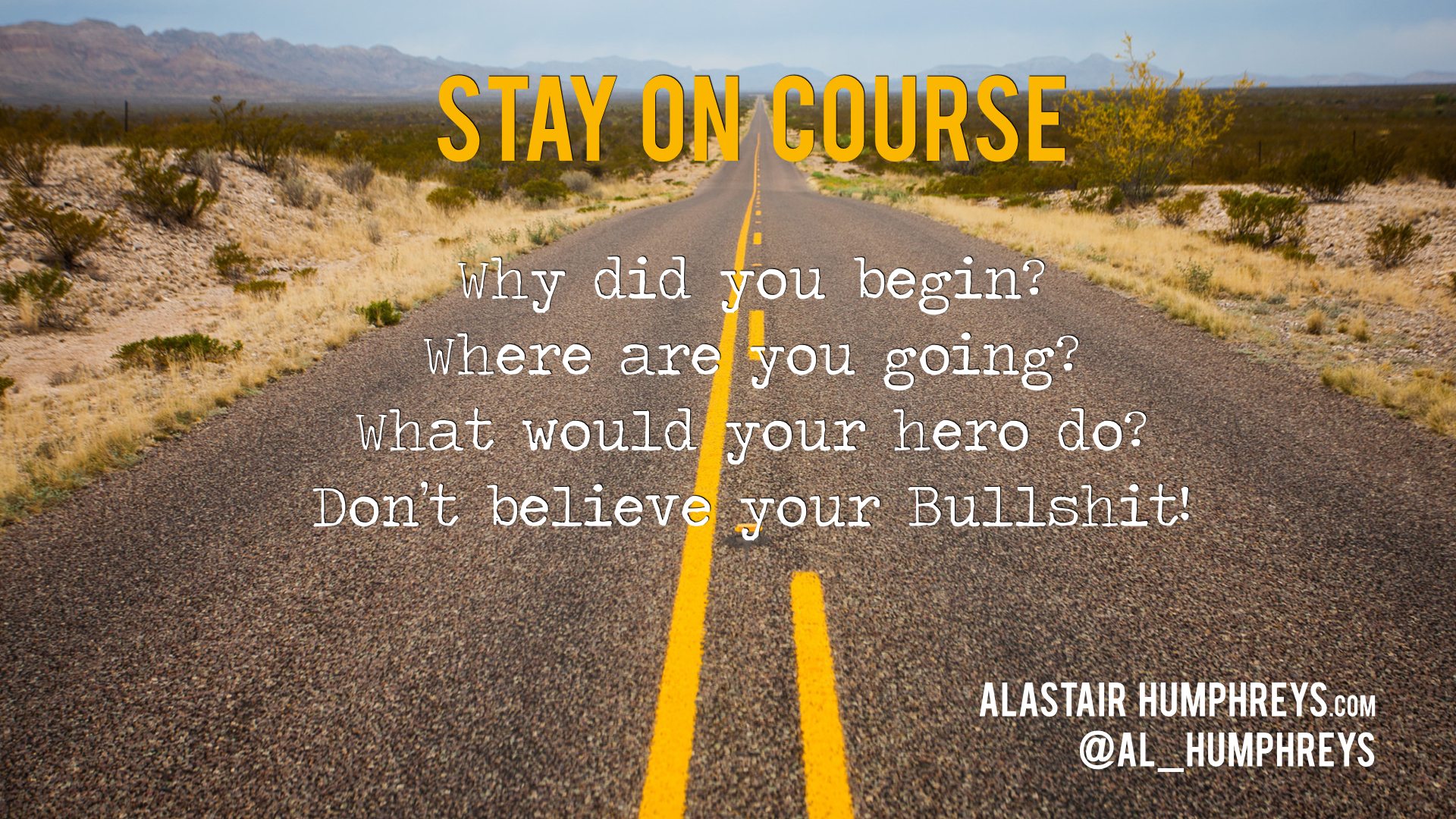
What other advice would you have? Please have your say in the comments below…
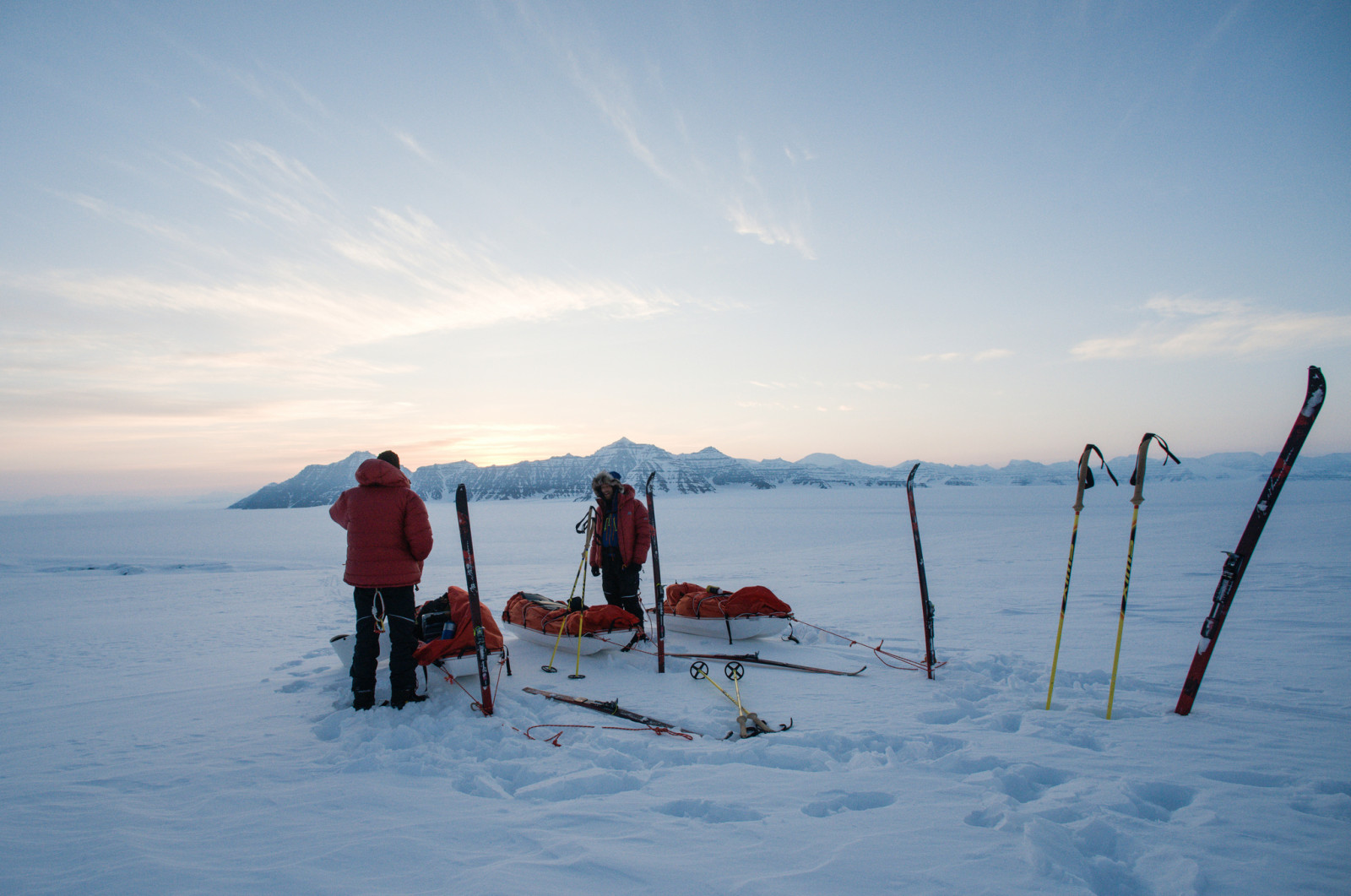


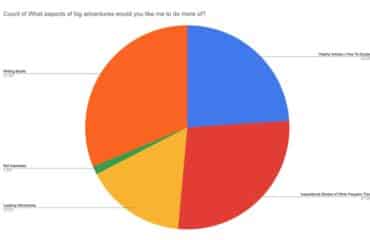
Hi Alastair. I enjoyed your post. I think the route you outlined to making a living as an adventurer equally applies to folks who are wanting to go the independent route of making a living out of their passion.
I think most of us get seduced by the outliers and think ‘if I just copy what they do, i’ll be successful too.’ The trouble they don’t see that ‘outliers’ life in context. They only see what gets shown in the media, social or otherwise.
Many of us try to get from A to Z by skipping all of the letters in between. So thanks for outlining your journey and showing folks what has gotten you to the place you’re at now.
Peace,
Clay
Really like the way you’ve structured this post.
I’ve always thought that breaking out of a safe 9 to 5 has to be the one major barrier in living a life on your own terms (hope that makes sense).
Just having a push or stroke of good luck that allows you to take more chances is all it takes for people look at their options so differently.
Alistair: Superb point about the apprenticeship model, paying your dues with thousands of hours of deep, focussed work and learning. Mastery has no shortcuts, and Robert Greene’s book called Mastery also makes that clear. Glad you recognized you had reached the point of speaking with authority on the topic.
“In other words, like in every other career (except for Being-a-Celebrity or Going-on-X-Factor which too many people aspire to as shortcut solutions), I’d served some sort of apprenticeship and built up some useful experience.”